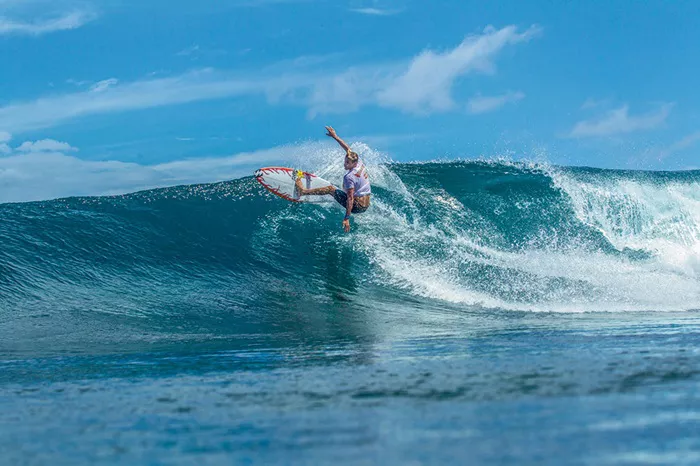Surfing is often perceived as an extreme sport reserved for those who are comfortable in the water. For beginners, especially those who might not be confident swimmers, the question arises: Can you surf if you don’t know how to swim? This article delves into this topic, examining the feasibility, challenges, and safety considerations involved.
Understanding the Basics of Surfing
Surfing is a sport that involves riding waves on a surfboard. It combines balance, timing, and a deep connection with the ocean. Traditionally, surfers need to paddle out to catch waves, and this requires a fundamental ability to swim. However, with advancements in surfing equipment and techniques, there’s been a growing interest in whether individuals with limited swimming skills can still enjoy the sport.
Essential Surfing Skills and Swimming
To effectively understand how swimming skills relate to surfing, it’s important to identify the key skills needed for each:
Surfing Skills:
- Paddling: Essential for getting out to the waves and positioning yourself.
- Balance: Required to stay on the surfboard while riding the wave.
- Timing and Wave Reading: Critical for catching and riding the wave.
Swimming Skills:
- Buoyancy: Helps in staying afloat and moving in the water.
- Breath Control: Important for managing underwater situations.
- Water Comfort: Reduces fear and improves reaction to unexpected conditions.
Can You Surf Without Swimming Skills?
The Role of Swimming in Surfing
While it’s theoretically possible to surf without being a strong swimmer, swimming skills significantly enhance safety and enjoyment. Surfing involves being in the water for extended periods, and strong swimming skills are crucial for:
- Paddling Out: Without adequate swimming ability, paddling out can be challenging and exhausting.
- Recovering from Falls: Surfing involves frequent falls. Being able to swim back to your board and avoid panic is essential.
- Safety: Knowing how to swim increases your ability to handle unexpected situations such as strong currents or waves.
Alternatives for Non-Swimmers
For those who are not confident swimmers but still want to experience surfing, there are a few options:
- Surfing with a Leash: A leash attaches you to your board, reducing the risk of losing your board and aiding in recovery.
- Surf Lessons: Professional surf instructors can provide tailored lessons that focus on water safety and basic skills.
- Surf Pools: Artificial wave pools offer a controlled environment where the risks associated with ocean surfing are minimized.
Safety Considerations
Regardless of swimming ability, safety is paramount in surfing. Here are key safety measures:
- Wear a Personal Flotation Device (PFD): While not commonly used in surfing, some beginners might opt for a PFD to enhance buoyancy.
- Choose Calm Conditions: Start in conditions with small, manageable waves and minimal currents.
- Surf with a Buddy: Having a more experienced surfer or instructor with you can enhance safety.
Training and Preparation for Non-Swimmers
If you’re committed to learning how to surf but lack swimming skills, consider the following preparatory steps:
- Basic Swimming Lessons: Even a basic level of swimming ability can vastly improve your surfing experience and safety.
- Ocean Awareness: Understanding ocean conditions, currents, and weather can help mitigate risks.
- Physical Fitness: Improving your overall fitness can aid in paddling and handling the physical demands of surfing.
Conclusion
In summary, while it’s technically possible to engage in surfing without knowing how to swim, it poses significant challenges and safety risks. Strong swimming skills greatly enhance the surfing experience by providing safety, comfort, and control in the water. For those who are interested in surfing but are not confident swimmers, it’s advisable to work on swimming skills and take appropriate safety measures. Surfing is a rewarding sport, but ensuring that you are well-prepared and safe is essential for enjoying it fully.
see also: How Difficult Is Kite Surfing?
FAQs:
Can I learn to surf without any prior swimming experience?
While it’s possible, having basic swimming skills is highly recommended for safety and ease. It’s best to start with swimming lessons to build confidence and comfort in the water.
What kind of surf equipment is best for beginners who can’t swim well?
Beginners might consider using a larger, more stable surfboard and wearing a personal flotation device. Additionally, using a surf leash is important for safety.
Are there any surf schools that cater specifically to non-swimmers?
Some surf schools offer specialized lessons for beginners with limited swimming skills. These instructors focus on safety and gradually introduce surfing techniques.
How can I build my swimming skills to better prepare for surfing?
Regular swimming practice, focusing on stroke technique and endurance, can help. Consider working with a swimming coach to develop skills specific to water safety and comfort.
related topics:
- What Is Snaking in Surfing
- How Difficult Is Kite Surfing?
- What Is the Surfing Capital of the Philippines?

